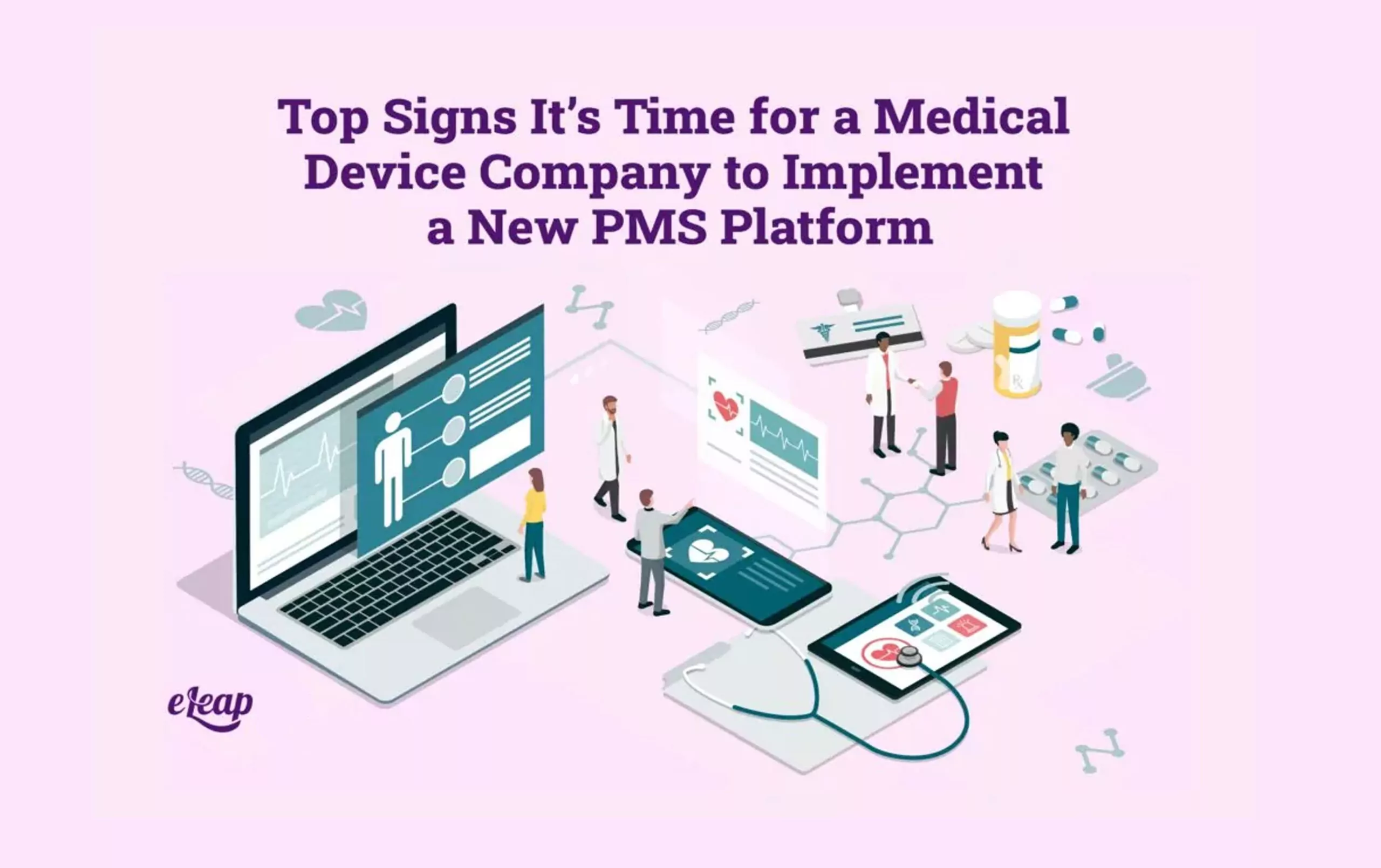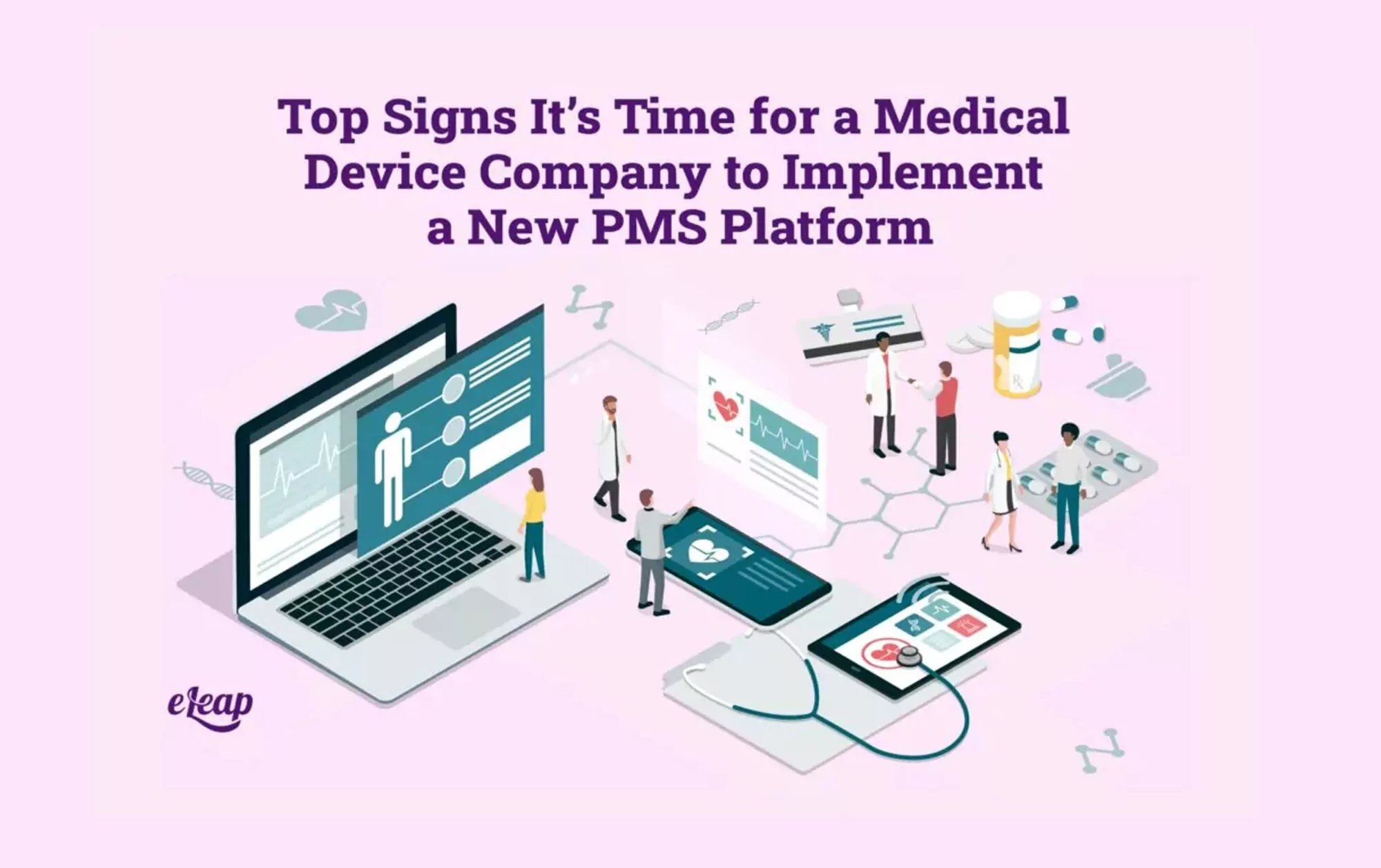Top Signs It’s Time for a Medical Device Company to Implement a New PMS Platform

Employee PMS Platform is one of the most important elements of a medical device organization. The efficiency and daily habits of employees in the medical device industry will directly affect the revenue and reputation of an organization that develops medical devices.
If it’s efficient enough, a PMS platform will allow upper management to analyze and make changes to their team that will optimize performance within the organization. However, if a PMS platform isn’t implemented properly or the program is outdated, it’s possible that these systems can be counterproductive. Click to get your free eBook on ‘Performance Management’.
As a manager, it’s important to stay aware of the efficiency of your PMS platform. These are the top signs that it’s time for a medical device company to implement a new PMS program.

How Does a PMS Platform Help a Medical Device Company?
Before you can understand the signs of a failing PMS, you must understand how these programs benefit a medical device organization. There are many working arms of a medical device company, and a PMS can improve several departments and dynamics of any organization.
Quality Control
Quality control and employee assessment are important for a medical device company. When it comes to the production stage of a medical device company, a good PMS platform can assess how well employees grasp an organization’s procedure for product assembly.
Competency must be assessed and developed for the development department of a medical device company. Monitoring the strengths and weaknesses of an employee’s habits when it comes to assembly will help the final quality of products produced.
Customer Service
There is a customer service department in most companies. A quality PMS will ensure that employees in this department maintain good relationships with current clients.
Monitoring the Sales Reps
Monitoring your sales reps is one way to use a quality PMS platform to your advantage. Each sales rep must show the proper competency and knowledge of all products in order to ensure steady revenue and marks for growth within the organization.
There are just a few of the major areas in a quality PMS that will benefit a medical device organization. With this being said, let’s examine the signs that your PMS platform is no longer working for your medical device company.
Signs of a Failing PMS Platform
There are several tell-tale signs that the PMS program you are using is no longer benefiting your medical device company. Use the following section as a guide when assessing how beneficial your PMS program is to your company.
Slower Sales/No Longer Experiencing Growth
This almost doesn’t have to be mentioned when it comes to your PMS platform. Anytime slower sales or growth is no longer being experienced, there is clearly an issue somewhere within your organization.
However, sometimes these issues can be directly attributed to your PMS platform. In the medical device industry, there could be several reasons for a decline in sales.
- Your sales reps aren’t performing their jobs efficiently or hitting sales quotas.
- The manufacturing team isn’t properly assembling quality products, leading to unhappy customers and high complaints department numbers.
- If customer service isn’t keeping current clients happy or providing the appropriate level of care and attention, there can be a decline in sales.
Having a clear issue in one or any of the previously mentioned departments can be a red flag when it comes to your PMS. Lackluster employee performance and production will always be one of the fastest ways to slow down your organization’s revenue.
Implementing a new PMS program can slowly but surely increase the sales of your organization.
Customer Complaints
When there are complaints from your current clients, this can be a direct reflection of the efficiency, or lack thereof, of your PMS program. Although it doesn’t necessarily matter where the complaints are surfacing from, these are some of the potential areas from which these can arise:
- Behavior/practices of sales reps
- Quality of products
- On-time deliveries/shipments
Each of these areas can be improved with a quality PMS program. Monitoring employees’ behavior and work habits within these departments will allow you to make the proper changes to improve customer satisfaction.
Regulatory Compliance
This is a department you never want to have issues in. Still, problems with regulatory compliance can signal issues with your PMS program.
Regulatory compliance starts with the right LMS program. Your employees must be familiar with the proper regulatory practices, and the training and certifications must be documented in detail to satisfy regulatory organizations.
Having the right PMS platform can clue you in as to whether your LMS platform is not efficient enough for implementing compliance or if it’s an employee issue.
It’s vital that you correct any compliance issues by implementing the right PMS program. Failure to correct these problems can lead to fines and the revocation of licenses for medical device organizations.
Shipping Problems
Not having the right PMS platform can also lead to shipping problems within your organization. If your shipping and freight department isn’t following the proper company protocols, there could be supply chain issues looming.
Having the ability to monitor the performance of your shipping department can ensure prompt deliveries. This is vital when it comes to any company that is in the manufacturing sector.
Takeaways
When an organization exists within an industry that has so many working arms, such as the medical device sector, a proper PMS program must be in place. Failing to monitor the performance of employees in each department properly can lead to serious consequences organization- and industry-wide.
It’s important to stay aware of the efficiency of your PMS platform. How well your PMS program is working can also be a direct reflection of your LMS platform. As a manager, you must stay mindful of both of these programs separately in order to ensure the proper operation of a medical device organization.